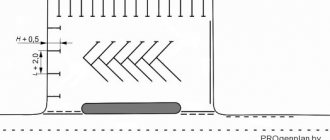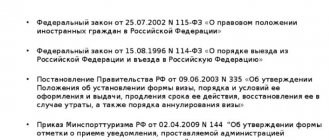Laws governing the activities of GSK
Unfortunately, a unified federal law on garage cooperatives has not yet been developed, which would regulate the actions of the association for the collective management of garages for cars. Moreover, the status of the GSK is the least legally defined in comparison with other cooperatives.
To regulate relations between the cooperative and shareholders, the following laws apply:
- Ch. 9.1., which is devoted to decisions made at meetings of cooperatives.
- Art. 116 of the Civil Code of the Russian Federation. Secures the legality of the association’s actions in relation to the construction and maintenance of boxes.
Special mention should be made of the legislation of the Russian Federation, which many mistakenly apply to the regulation of relations in civil society cooperatives, whereas in fact its provisions do not apply to garage cooperatives:
- No. 193-FZ of December 8, 1995.
- No. 3085-I dated June 19, 1992.
- No. 7-FZ of January 12, 1996.
Type of ownership
Both individuals and legal entities can become members of the GSK. Merged exclusively legal entities cannot create a State Joint Stock Company. Among the shareholders there must be at least two individuals. Otherwise, the union will be recognized as a legal entity.
According to the Civil Code of the Russian Federation, garage cooperatives are non-profit organizations. However, they have the right to carry out entrepreneurial activities. For example, rent out part of the garages or provide car repair services.
It should be remembered that according to the laws of the Russian Federation, a tax of 13 percent must be paid on the profit received. The remaining profit after taxation is subject to distribution among shareholders in accordance with the Charter.
Reference: the Russian Federation has not adopted a legislative act that would regulate the activities of a garage-construction cooperative. Only the general provisions of the Civil Code apply to GSK.
The concept of GSK and its advantages over other types of legal entities
It’s worth starting with how the GSK stands for and what its advantages are over other forms of associations. The abbreviation means “garage-building cooperative.” It is created by combining financial and property contributions - shares.
The goals of such an organization are to:
- build garages;
- supply them with utility resources;
- protect buildings;
- monitor the current state of structures and so on.
Therefore, the association is intended not only to create, but also to maintain boxes.
The answer to the question of what a garage-building cooperative is will be incomplete without mentioning whether the organization has:
- charter;
- governing bodies;
- territories;
- printing;
- own accounting and other attributes of a legal entity.
Most often, land is allocated to an association for perpetual use or lease. Subsequently, participants can privatize it by allocating shares in kind and transferring it into private ownership.
So, GSK is a legal entity created by combining the property and material investments of members in the construction and ongoing maintenance of car boxes.
Definition of the concept
A cooperative is an organization created by citizens on a voluntary basis.
In the case of a garage-building cooperative, citizens should be understood as car owners whose common goal is to satisfy the needs associated with car storage. In simple terms, drivers come together to create and maintain garages. In fact, GSK is a type of consumer cooperative and is subject to mandatory state registration. The main document is the charter adopted at the general meeting by the majority of participants.
IMPORTANT! Garages built by the cooperative belong to all members of the organization.
Creation of a garage cooperative
There are situations when buildings are already ready, but the cooperative has not yet been formed. In this case, a group of people who want to collectively maintain the built premises for cars, the question arises how to create a garage cooperative from existing garages.
GSK, like any legal entity, is subject to state registration. However, before proceeding with its registration, the initiators of creating an association must understand:
- why is this being done;
- where the association may be located;
- how it will be managed.
Even before the registration procedure begins, like-minded people should be prepared to spend a lot of time and effort on this, because it cannot be completed in a short time.
But joint problem solving is beneficial from any point of view: it is faster and cheaper to erect buildings, it is more convenient to connect utility networks, it is easier to conclude contracts with contractors for the repair of buildings.
If interested parties have no idea where to start and how to organize a garage cooperative, the step-by-step instructions will look like this:
- Meeting of the group of initiators. Most often, such people are united by a common place of residence or work.
- Development of the GSK charter.
- Preparation of documents: minutes of the meeting of participants, copies of shareholders’ passports, and so on.
- Registration with the tax authority.
- Opening a bank account.
- Registration of the land plot on which the cooperative will be located.
- Construction of boxes for cars.
- State registration of GSK.
Determination of the form of ownership
GSK figured it out what it is. Now it's time to move on to considering all the subtleties.
Although this form is non-commercial (according to the Civil Code), shareholders can engage in entrepreneurial activities. For example, provide services for repairing other people's cars, or rent out collective premises.
Participants in garage cooperatives can be not only individuals, but also legal entities. By the way, exclusively legal entities cannot create a State Joint Stock Company through merger. Participation of at least two individuals is required. Otherwise, the organization will not be able to obtain the status of a citizens' union.
All profit received from the activity (after paying 13% tax to the “treasury”) is distributed among the participants in accordance with the charter agreement.
It is worth noting that the legislation of the Russian Federation does not provide for any legal acts regulating the activities of garage and construction cooperatives. Accordingly, only the general provisions of the Civil Code are applicable to this form of business.
Who manages the cooperative and how?
Management is carried out as follows:
- The most important and influential body is the meeting of members. It is carried out at least twice a year. All decisions are made by open voting with majority support;
- The implementation of decisions made must be monitored by the Board, the composition of which is approved at meetings. It should include three or more participants of the GSK (as the abbreviation stands for - we’re sure you’ve already remembered everything);
- A chairman of the board must be appointed, who leads the “executive power” in this organization;
- To monitor the activities of the cooperative, a supervisory commission (also called an “audit commission”) is appointed. Again, its members are elected at a general meeting.
Responsibilities of the Chairman
He is appointed by voting at a general meeting of shareholders and is re-elected every two years. His powers and responsibilities include the following:
- Coordination of the work of the board;
- Organization of meetings of members of the GSK (interpretation: garage and construction cooperative) and their conduct;
- Management of financial resources of the organization;
- Establishment of contractual relations with performers (contractors).
Contents of the GSK Charter
The GSK Charter is the main constituent document in which the members of the association announce the creation of a new legal entity and determine the internal rules and work of the cooperative.
The charter does not have a mandatory structure, but it usually contains the following sections:
- General provisions: name of the cooperative, information about its location, participants.
- Goals of activity and legal possibilities of the association.
- The property of the cooperative, which is the property of the organization, with an explanation of how it is formed and in what order it will be used.
- Management bodies of the association: general meeting, board, chairman, audit commission.
- Rights and obligations of GSK participants.
- Reporting.
- Reorganization and liquidation of the association.
Objectives of activity
The goals of a cooperative most often include:
- obtaining land plots for placing boxes;
- their construction;
- purchase and use of equipment to service the association;
- concluding agreements aimed at ensuring the activities of the organization;
- connecting buildings to utility networks and their maintenance;
- use of property to meet the needs of shareholders;
- organization of work on protection, cleaning and landscaping of the territory.
GSK documents
The Charter is the main document of the GSK, which sets out all the rules and regulations. This document should be given special attention, since there are certain requirements for its preparation. Must contain:
- General situation. This contains the name and address of the organization, and also indicates its exact activities.
- Goals and ways to achieve them. An example would be the conclusion of contracts for construction and connection of light.
- Finance. This section describes issues related to GSK property. Membership fees are indicated, as well as penalties for late payments and how the organization's budget will be used. You should list the funds to which it is planned to be distributed and give each item a brief description.
- Controls. List all positions and selection methods.
- Rights and responsibilities of members, as well as rules for joining. The conditions of membership, possible share in profits and options for participation in management are described. Responsibilities are also stated: first of all, compliance with the rules of the charter, fire safety requirements, conditions of maintenance of the garage box, etc. In the same paragraph, it is worth providing information about the conditions for exclusion from the cooperative. This could be refusal to pay fees, gross violation of rules or damage to common property.
- Liquidation or reorganization of a cooperative. During its existence, the GSK can not only close, but also merge with another or, conversely, split into two. Therefore, it is necessary to specify the conditions.
- Reporting. The cooperative must keep paper records of its activities and submit annual accounting and tax reports.
Other documentation
In addition to the charter, the garage cooperative has the following documents:
- Certificates - issued at the request of members of the GSK indicating the name of the legal entity, the details of the applicant and the address where the garage is located.
- Membership books are personally issued for each member of the cooperative and give the right to enter the territory and use the garage. In addition to personal information, indicate the dates and amounts of membership fees made.
Application for entry is a document on the basis of which a citizen joins a cooperative.- Audit Commission Report – contains information about the results of the audit.
- Minutes of the general meeting - in it the secretary of the meeting summarizes the results of the meeting and the decisions made, as well as the voting results.
- The agreement is drawn up between the chairman of the GSK and each of its members. The document specifies the conditions for membership and use of the garage.
Land plot for GSK
The territory where it is planned to place boxes for cars is an integral complex. This means that, regardless of the characteristics of the site, it entirely belongs to the cooperative and cannot be divided into separate fragments.
The indivisibility of land in the GSK leads to the fact that its position is regulated by the rules on common shared ownership ( ).
To obtain territory for a civil construction company, you need to go through several stages:
- Find a suitable plot for the construction of a cooperative. It must meet certain requirements: distance from residential areas, the ability to carry out construction work, and so on.
- Write an application to the municipality to determine the intended purpose of the land. If it allows the construction of garages, you need to apply for the construction of buildings.
- After receiving permission, submit an application to participate in a tender for the acquisition or lease of the territory.
- Formalize ownership and register a transaction or enter into a lease agreement.
For details of the procedure for purchasing a plot, see the article “How to buy land for a garage.”
Rights and obligations of GSK members
By joining such associations, car owners acquire various opportunities and restrictions, which are regulated by the constituent document.
Among the fundamental rights are the following:
- take part in management activities;
- carry out financial activities with other participants;
- have access to complete information about the organization’s work at any time;
- dispose of property in their own interests;
- conduct any other lawful activity.
Compliance with the charter of the cooperative and the legislation of the Russian Federation are the main responsibilities. This also includes compliance with all rules and regulations, payment of all cooperative fees and state taxes in full.
We also pay special attention to the fulfillment of additional requirements of the Civil Code - for example, notification of manipulations with real estate, participation in collective events, improvement of garages and the territory of the Civil Code.
State registration of GSK
Registration of a garage cooperative under the new law is the final stage of creating a legal entity. It should take place after the car boxes have been erected and put into operation.
The person responsible for completing this procedure is the chairman of the organization. He prepares documents, monitors the accuracy of the data provided and represents the association before state and municipal authorities.
A person creating a legal entity for the first time probably does not know how to register a garage cooperative. Meanwhile, the procedure is quite simple.
Particular attention should be paid to the minutes of the meeting of shareholders, at which the decision to create a cooperative is made, and its charter. It is these two documents that will guide its participants and officials when carrying out the activities of the State Joint Stock Company.
When drawing up documents for registration of the GSK (registration application, technical passport of the structure), information about the organization must be entered in the same sequence as in the Charter. Otherwise, the document will be recognized as improperly executed and registration will be denied. Step-by-step instructions on how to register a cooperative are given below.
Registering a cooperative
To register an association, you must provide the following list of documents to the Rosreestr authorities or the MFC:
- application form on the creation of a legal entity (No. P11001) with a notarized signature of the chairman of the association;
- receipt of payment of state duty;
- notarized draft charter;
- minutes of the meeting of potential participants of the organization.
If this sequence of documents for building a garage cooperative receives approval from the registration authorities, the procedure for registering the GSK will be completed.
Parsing the term
GSK is a garage-building cooperative, a clear description of which is given by Article 116 of the Civil Code:
“A voluntary association of citizens created to satisfy common needs for certain services or goods.”
But if we look at a specific situation, a garage cooperative is a public organization whose participants (members) make shares on a voluntary basis to create safe conditions for storing their own vehicles. The main goal of GSK is to create garages and their subsequent maintenance.
Like any organization, it requires registration with government agencies and is subject to the control of executive structures. A prerequisite for functioning is the presence of statutory documents that regulate the activities of the garage and construction cooperative, and are adopted based on the results of the meeting of members (shareholders).
Articles on the topic (click to view)
- P 5 tbsp. 488 of the Civil Code of the Russian Federation: the seller’s right of pledge for an apartment
- Buying an apartment in a civil marriage
- Buying an apartment by a foreign citizen
- Housing cooperative what is it? Advantages and disadvantages, operating principle
Please note that all structures built with collective funds are the common property of the participants.
Distinctive features of the association's work
GSK receives the status of a legal entity. However, the legal status of cooperatives is somewhat different from other forms of enterprise:
- The creation of an association is completed only after the construction of boxes and payment of all share fees.
- Shareholders can form a cooperative NFI (an abbreviation meaning “indivisible property fund”), to which participants cannot lay claim. It is impossible to foreclose on such a fund for the debts of its shareholders.
- An organization may use hired labor, but their number should not exceed 30% of the number of participants.
- GSK is liable for its debts with all its property. If it is not enough, the participants bear subsidiary liability.
How is GSK managed?
The main role in the day-to-day management of the organization is played by its board. In this regard, a few words should be said about the work of the board in the cooperative garage. It consists of a chairman and an audit commission.
Of course, the main role in managing the association is played by the general meeting of shareholders, which makes decisions on key issues by a majority vote. However, it is very inconvenient to gather all participants for any reason. And this is not always possible. The board exists to solve current problems.
The Chairman performs a number of responsible tasks:
- Organizes and conducts general meetings of shareholders.
- Concludes contracts with service providers and contractors.
- Manages the cash fund.
- Represents the interests of the organization before government agencies.
The Audit Commission supervises the work of the chairman, accounting department and other officials of the organization, especially in relation to financial matters.
The legislation provides for the possibility of creating and functioning of other bodies. Thus, in Moscow there is a “Garage Construction Directorate”. This is a state unitary enterprise whose scope of activity includes the sale to private individuals of property under the economic control of the city government. It is responsible for the implementation of the municipal program “People's Garage”, within the framework of which the construction of boxes is carried out, their legal registration and sale.
More information about GSK membership
The main document that confirms membership in the association is the membership book of the garage cooperative. It contains the following information:
- Full name of the shareholder;
- photo;
- his box number;
- information about the cooperative;
- date and amount of his contributions.
The document is signed by the chairman and certified with a seal.
The membership book does not just confirm a person’s participation in the organization; it is needed when selling a building, registering it as a property and in other transactions.
To become a member of the cooperative, you must write an application to join the GSK. The issue of admitting a new member to the association is usually put to a vote at a general meeting of shareholders.
If provided for in the Articles of Association, the decision may be made by the chairman or the board.
If the entry of a new participant is approved, he must pay a share contribution within a certain period. After this, the next edition of the charter should be registered, which will include a new member.
How is an activity review or audit carried out?
The purpose of the audit at GSK is to examine the documentation and territory of the cooperative for the presence of violations. A planned audit occurs once every three years, however, there is a list of violations described in Law No. 294-FZ, which may be of interest to the prosecutor’s office.
If a member of the cooperative is not satisfied with the actions of the chairman, he can provoke an unscheduled inspection. Where is it recommended to start checking? To do this you need:
- collect evidence of violations committed by management;
- write a statement in free form;
- submit it to the prosecutor's office.
ATTENTION! After review, an employee will visit the garage cooperative to review operations.
Since 2014, in order to legitimize the decision of the GSK meeting, at least 50% of the members must be present at it
The main instrument for regulating relations between members of the State Committee is the general meeting. Its functions:
- Development and adoption of the charter of the garage cooperative;
- Appointment and re-election of a chairman who is required to deal with organizational issues;
- Election of members of the GSK board (if necessary);
- Formation of an audit group;
- Solving current issues;
- Acceptance of new members, expulsion of old members.
Since 2014, changes have been made to the Civil Code of the Russian Federation: Chapter 9.1 “Decision of meetings” has appeared, which determines what should be the number of participants in the Civil Code of the Russian Federation who will be able to make any decisions during their meeting. This is at least 50% of the total number of cooperators. During voting, the result is the decision that receives the majority of votes.
Expulsion and withdrawal from the cooperative
Expulsion from members of the association is carried out forcibly, against the will of the person. If a participant himself wants to cease being a shareholder, the procedure is called “exit”.
Let's look at the procedure for excluding a participant:
- Reasons arise: failure to fulfill the duties of members of the cooperative as prescribed in the charter, etc.
- Notification in writing to a person of a general meeting of participants at which the issue of his exclusion will be considered.
- Conducting a general meeting with the adoption of an appropriate decision.
- Notifying a person of exclusion.
- Payment to a former member of the GSK of his share contribution.
Sequence of actions for voluntary exit:
- The shareholder writes a statement of resignation from the garage cooperative addressed to the chairman of the association.
- At the meeting of participants, a corresponding decision is made. If the charter allows, the chairman can do this alone.
- Changes are made to the organization's statutory documents, which are then subject to state registration.
- The former participant is paid his share contribution.
A person cannot be refused to leave the cooperative - this is his legal right. If a citizen’s exit is not documented or he is not paid a share contribution, such actions can be challenged in court.
Where to begin?
The organization of any cooperative begins with drawing up a charter. A beautiful, sonorous name is invented, which will appear in all documents in the future. This is not an easy matter and you will need like-minded people, among whom it is advisable to find a lawyer. The charter covers the main points regulating the activities of the garage-construction cooperative, sets out in detail the rules for joining and leaving it, and considers the main points of financial issues and mutual settlements.
Free legal consultation by phone In Moscow and the Moscow region7 St. Petersburg and the region7 Federal number7
There are standard draft GSK charters, which can be slightly adjusted by a specific organization depending on the region and the tasks performed. Each subject of the Federation has its own requirements for the package of documents. We should not forget that GSK is a collective property, so all decisions are made collectively. Members of a cooperative can be not only individuals, but also legal entities.
Important to know! Decoding of the GSK implies that the association cannot consist only of commercial structures. There must be several individuals.
Despite the fact that garage cooperatives are non-profit organizations, the law does not prohibit them from engaging in business. For example, an additional car wash, repair shop can be created on the basis of a cooperative, premises can be rented out, etc. At the same time, according to the Tax Code, 13% tax is paid on revenue, and the remaining amount is distributed among shareholders in the ratio prescribed in the Charter. There are no separate articles or laws specifically for garage cooperatives, so the usual articles of the Civil Code apply to them. The Charter also stipulates the conditions for leaving the cooperative and the required payment of monetary compensation.
Carrying out liquidation and reorganization of the association
When discussing aspects of the work of the GSK, it is worth mentioning the procedures inherent in each legal entity: reorganization and liquidation of the association.
Liquidation is the cessation of the activities of an enterprise. It can take place by decision of the shareholders themselves or the court. You should know how liquidation works in 2021. To do this you need to perform a number of actions:
- Registration of the decision of the general meeting of participants or obtaining a court decision.
- Notification of Rosreestr about the start of the procedure.
- Appointment of a liquidation commission at a meeting of participants.
- Placing information in the official publication about the intention to liquidate GSK.
- Collection of information about the financial condition of the organization, collection of receivables and repayment of accounts payable.
- Drawing up the balance sheet of the GSK. Note that closing a garage consumer cooperative with a zero balance is the best option, since collecting other people’s debts or the need to pay your own will not become obstacles to the liquidation of the association.
Reorganization is a change in the form of existence of a cooperative, including division into several new associations. The procedure in this case looks like this:
- Notifying shareholders about the procedure and timing of the procedure with justification for its necessity.
- Preparation of constituent documents for new (new) legal entities.
- Transfer of rights and obligations to legal successors. Some procedures must undergo state registration, for example, the transfer of rights to real estate.
- Approval of documents at the general meeting of participants.
- Inclusion of shareholders of the old cooperative into the new legal entities.
Bankruptcy of GSK is the basis for starting the liquidation procedure in court. In this case, a meeting of shareholders is not held, because the decision is made by the court. He will appoint a liquidator who:
- determine the financial condition of the organization;
- will determine the order of debt payments;
- the remaining funds, if any, will be distributed among the participants of the association.
Share contributions
GSK is created and operates at the expense of the financial and property funds of its participants. The sooner you pay a share contribution to the organization’s cash desk or make a non-cash transfer of money to the cooperative’s account, the sooner it will begin to function.
The size of the share contributed by the participant is determined at the stage of creation of the legal entity and is reflected in the charter. Essentially, it should reflect the cost of each box in the GSK.
Each time a person pays part or all of their contribution, information about the date, amount and payer is entered into the accounting records. The same data is indicated in the participant’s membership book.
After the share has been paid in full, the association participant is given a certificate confirming payment of the entire amount. The document is signed by the chairman of the cooperative, an accountant and certified by a seal. The certificate contains information about the date of entry into the GSK, the size of the share, the date of its payment, and the box number.
Potential participants are interested in the question of whether the governing bodies of the GSK can seize the garage for non-payment of membership fees. If the share contribution is paid in full, then the member acquires the right of common joint ownership (share) of the cooperative, which is a type of private property right. And private property can only be deprived by a court decision.
In order to take away the garage from such a person for non-payment of fees, you need to go to court and prove that these actions cause damage to other participants, which is enough to deprive the rights to real estate.
Cash contributions from shareholders
A mandatory condition for participation is payment for joining a collective association followed by payment of membership fees (frequency, amounts and other nuances are determined by the charter).
It is quite logical that these financial revenues are the main source of income for GSK. And each participant in the citizens’ union must pay fees on time and in the amount established in the agreement.
This is important to know: P 5 tbsp. 488 of the Civil Code of the Russian Federation: the seller’s right of pledge for an apartment
Legal status of garages in GSK
There are specifics to managing a garage that is part of a cooperative. The first is the reconstruction of the garage at GSK. If its implementation does not affect the interests of other participants in the association, then it is not necessary to obtain the approval of the shareholders. After reconstruction you need:
- issue a new technical passport for the building;
- if you have ownership rights to the garage, obtain confirmation of this right based on the registration certificate.
If the work affects capital load-bearing structures or the area of the building changes, then you must obtain permission for reconstruction from the municipality in advance.
The second situation is the presence of buildings that do not have an owner. In this case, the garage at GSK can be considered ownerless. Since we are talking about one of the fundamental rights guaranteed by the Constitution, action will have to be taken through the courts. But first you should:
- Make every effort to identify the owners of the property. It is advisable to record the search process or document the efforts made.
- Collect evidence that the cooperative spent money on the maintenance of the building: checks, receipts, certificates of work performed, and so on.
- File a claim with the court to recognize the garage as ownerless property.
Sometimes there is an unfinished box on the territory of the association. To legalize the construction, you should find out what documents are needed for the unfinished construction project and submit them to the registration chamber. Their list includes copies and originals:
- Applications for registration of ownership.
- Receipts for payment of state duty.
- Applicant's passports.
- Title documents for a plot of land.
- Cadastral plan of the territory.
- Construction permits, the receipt of which is provided for in Art. 51 of the Town Planning Code of the Russian Federation.
- A site plan drawn up in the BTI.
- Project documentation.
The next non-standard situation is permission to build a permanent garage on the territory of GSK. The procedure is as follows:
- Obtaining opinions on the possibility of construction from the land resources department, architectural authorities, fire, environmental and sanitary-epidemiological organizations.
- Concluding an agreement with a land management organization on the development of a land allocation project.
- Approval of the project at a session of the local council.
- Drawing up a cadastral plan of a land plot.
- Development of a technical passport for construction in BTI.
- Construction of the box and its commissioning.
We advise you to read the article “How to register a garage as your property.”
Boxing rules
But the Judicial Collegium for Civil Cases of the Supreme Court of the Russian Federation sided with the garage owner.
This story began in the district court, where a citizen brought a claim against a garage and construction cooperative for recognition of his ownership of his box. The plaintiff indicated in the statement that back in 1992 he paid the share contribution in full and has owned this box since then. But 15 years later, the city department of Rosreestr denied him state registration of ownership of the garage. The decision states that it was refused “due to the failure to provide documents confirming the creation of the property by the GSK and its commissioning, or documents confirming the cooperative’s ownership of the real estate transferred to the plaintiff.” The citizen went to court. But he lost there. The appeal agreed with the decision. The losing plaintiff went all the way to the Supreme Court. There they studied the case and explained why the boxing owner was right in his demands.
It is clear from the case that back in 1987 the executive committee of the city council authorized the construction of cooperative garages. The district authorities, by their decision, allowed the organization of a garage and construction cooperative, and the city authorities allocated a plot of land for it. In 1999, the city authorities “established the right to use the site on short-term lease terms” for GSK. After 13 years, the lease agreement was renewed.
The district court wrote in its decision that GSK has leased land and it has not been proven that it was ever allocated this land. According to the court, there is no evidence that the parking garage was put into operation “in accordance with the procedure established by law.” The appeal agreed with this decision.
But the Judicial Collegium for Civil Cases of the Supreme Court did not agree with this decision of its colleagues and explained why. The high court began its clarification with the Civil Code. There, Article 130 defines what an “immovable thing” is. These are plots of land, subsoil and everything that is firmly connected to the earth, that is, objects that cannot be moved without “disproportionate” damage to them. Plus, such objects include not only finished buildings, but also unfinished ones. Naturally, real estate also includes garages (parking spaces), but provided that the boundaries of such premises, parts of buildings or structures are “described in the manner established by the legislation on state cadastral registration.”
The ownership right of members of a garage cooperative arises from the moment the share is paid
The Supreme Court also reminded about its plenum (N25 of June 23, 2015). From the materials of the plenum it is clear that, according to the law, a thing is immovable either because of its natural properties or because of a direct indication of the law. The Supreme Court emphasized that state registration of rights to things “is not a prerequisite for recognizing it as real estate.” The same Civil Code (Article 218) states that citizens, members of housing, housing construction, dacha, garage and other consumer cooperatives who have fully paid the share for an apartment, dacha, garage or “other premises” acquire the right of ownership to this property.
The Supreme Court's conclusion from these clarifications is that, by virtue of the law, the ownership right of members of a cooperative to real estate arises from the moment of payment of the share contribution and does not depend on the state registration of this right.
The local court, refusing the citizen, concluded that the site was not allocated specifically for the construction of a garage “as a capital construction project”, the land is not owned by the plaintiff or the defendant, and under the lease agreement the cooperative received the land “without the right to erect capital buildings and structures.” The Supreme Court responded to this by saying that the local courts did not take into account the fact that the lease agreement was concluded “significantly later” than the construction of the garage, and the land was leased for the operation of an existing garage. Officials, when signing the lease agreement, could not have been unaware of the presence of a garage on this land. And the plot itself was transferred to the cooperative under a transfer and acceptance certificate without any conditions.
Another important point that the local courts did not pay attention to is that at the time of the construction of the parking garage as a capital structure and the full payment of the share by the citizen, a legal order of the City Council was in force to permit construction and allocate a site for it. And there was a decision by the executive committee of the city council to organize a garage and construction cooperative.
Based on those old Soviet documents in the case, the Supreme Court concludes that the construction of a garage on this site was authorized by the State Construction Committee by an authorized body of state power. There is also a fresh letter from the government in the file, which confirms that the construction of the GSK was carried out “in accordance with the procedure established by law.” And judging by the plaintiff’s testimony, some members of the GSK registered ownership of their garages. So the decisions of local courts will have to be reviewed.
Accounting and taxes
Accounting and tax accounting in a garage cooperative are based on the following principles:
- The revenue side of the cooperative's budget consists of membership fees from its participants, as well as profits from possible commercial activities.
- The expenditure part, as a rule, is determined by estimates and consists of expenses necessary for the existence of a legal entity:
- utility bills;
- current repairs of structures;
- construction of new boxes and so on.
- The accounting records of the organization are maintained by a professional accountant or the chairman of the cooperative, if he has the necessary knowledge. Responsibilities include carrying out accounting and financial accounting, maintaining a cash book in the GSK, and submitting reports to regulatory authorities.
- A cooperative can carry out commercial activities, but this entails the need to pay taxes.
- GSK manages all money received into the account and cash register of the association independently as a registered legal entity.
- In the case of exclusively non-profit activities, the association is considered non-profit, therefore it maintains tax accounting according to a simplified procedure.
Features of taxation
Taxes will have to be paid if you carry out activities that generate income. This may include:
- rental of garages;
- receiving profit from investing funds in bank accounts;
- conducting other business activities.
In this case, tax and judicial practice regarding garage cooperatives proceed from the fact that the budget should be divided into revenue and expenditure parts. Moreover, income received from commercial activities cannot be reduced by non-commercial expenses.
If the organization ends up making a profit, it must be divided among all participants. And on the share of each of them, the association must pay 13% income tax.
Bottom line
Creating a garage cooperative is a troublesome task associated with a huge amount of documentation. You will have to run through the authorities and be patient, as some stages last at least a month. An intelligent lawyer will help you correctly draw up all applications and documents, which will save time on reworking them.
Today it is not difficult to find a company providing such services. The association must include an accountant or a person knowledgeable in financial matters.
In practice, it has already become clear that if all activities are carried out correctly, all provisions are observed and all contracts are concluded, then the functioning of a garage cooperative sometimes brings quite a good profit to all its members.
Privatization of land plots
After privatizing the garage, you need to register ownership of the land underneath it. The lack of proper documents for the site may result in the owner being forced to pay a fine for misuse of the land and demolish the building.
To prevent this from happening, it is necessary to privatize the territory under the box.
Land ownership
To register ownership rights, it is necessary to write a collective application and submit it to the municipality department dealing with land issues.
Within a month, local authorities will consider the application and make a decision on allocating the land for privatization or on further leasing it for the needs of GSK. In order to privatize the garage and the plot underneath it, all members of the cooperative must register their rights to real estate.
If a decision is made to allocate land, the chairman of the GSK and the local administration sign a purchase and sale agreement for the site. The plot undergoes state registration, after which it becomes the property of the cooperative.
If members wish, they can allocate a part in kind that belongs to each person, or use the real estate as a joint part of the common property of the cooperative.
The details of the procedure are described in the article “How to register ownership of the land under the garage.”
Possible obstacles to repurchase
The municipality will refuse to register ownership of the land under the boxes in the following cases:
- there is no certificate of payment of the share in GSK;
- There are important utility lines on the site, and construction work may damage them;
- there are driveways and passages on the territory that are actively used by other citizens, and their transfer to private hands will harm transport links;
- not all members of the cooperative submitted an application;
- documents were filled out incorrectly, papers required by law were not provided;
- The site is intended for state and social needs of the population.
How is accounting done and what taxes are paid?
Despite the fact that GSKs are recognized as non-profit organizations, like any other legal entity, they are required to pay taxes. A number of benefits have been introduced especially for them. Features of taxation and other payments for cooperatives:
- VAT. From paragraph 1, paragraph 2, Article 146 and paragraph 4, paragraph 3, Article 39 of the Tax Code of the Russian Federation, it follows that GSK membership fees are targeted in nature, therefore they are not subject to value added tax. If a cooperative provides paid services for its members or third parties, then such profits require payment of VAT.
- Income tax. As in the previous case, membership fees and share contributions are not subject to income tax, but you will have to pay for business activities.
Property tax. Property on the balance sheet of the cooperative is taxed. When calculating, its original cost is taken into account. If a private person becomes the owner of the garage, then property taxes must be paid to him.- Land tax. Before the members of the cooperative register ownership, the tax is paid by the cooperative.
- Insurance. Law No. 125 Federal Law of July 24, 1998 obliges a legal entity to pay an insurance premium against an accident at work if it has employees subject to such insurance.
What are the features of accounting in a garage cooperative, read here.
Purchasing a garage in a cooperative
Often lawyers are faced with a situation where a garage is sold or purchased at GSK using a membership book. Such a transaction is possible, but there will be consequences associated with the state registration of the cooperative itself:
- The association was created under the Soviet Union and did not undergo re-registration. When concluding a transaction, you need to make the appropriate entries in the book, rewrite the property registration card, and approve the new member of the cooperative. However, in this case, it is still impossible to register the garage as a person’s property. The buyer only becomes a member of the cooperative, and an unregistered one.
- The cooperative is registered, but the boxes are not properly decorated. The transfer of ownership of a building is still carried out within the organization; it is also impossible to obtain a certificate of ownership of a garage.
- Boxing is registered to a private person. Provides for the ordinary purchase and sale of real estate. It is not necessary to obtain the consent of the cooperative members.
It is also important to know whether you can leave the garage cooperative if you own the garage. The answer to this depends on what is stated in the Charter. If such a clause is provided, then it is possible. If not, you will have to wait for the decision of the general meeting of shareholders or go to court.
Details can be found in the material “Purchasing a garage in GSK: documents, registration.”
Fire safety in a garage cooperative, as well as the procedure for maintaining individual garages
Each member of a garage cooperative, paying membership fees, hopes that his property will be protected not only from unscrupulous citizens, but also from the risk of fire situations. Therefore, it is imperative to ensure fire safety measures, otherwise registering the company will become almost impossible.
The following measures should be taken:
- Organize fire protection.
- Design and install a fire protection system. This includes a fire alarm, smoke removal devices, fire extinguishing installation, public address system and evacuation plan.
- Organize and conduct an audit and fire examination, as well as prepare a fire safety declaration.
- Conduct an independent assessment of fire risks.
- Conduct fire safety training for members of the association. Each new member undergoes the necessary training upon joining.
- Develop documentation regulating measures to prevent fire situations, as well as actions in the event of a fire.
In practice, fire safety measures should be as follows: in the case where the number of garages in the cooperative is more than 25 units, it is necessary to provide the territory with a car parking plan and an evacuation plan in the event of an emergency.
The following rules should be known to all members of the garage cooperative to prevent fire situations.
Example of a fire safety certificate.
So, in garages and in the area near them it is prohibited:
- obstruct or block gates and passages between garages;
- handle flammable liquids;
- carry out welding or thermal work;
- store cars with open fuel tank hatches;
- store oil or flammable fuel in an open container;
- drain fuel from cars, refuel them;
- charge batteries without removing them from the car;
- manipulations with open fire, for example, heating the engine with a blowtorch or using fire as room lighting;
- save cans of fuel over 20 liters and car oil over 5 liters.
The penalty for non-compliance with the rules should be harsh, up to and including expulsion of the offender from the ranks of members of the garage association.
Combustible materials should be stored in tightly sealed metal canisters. Garages should not contain trash, rags or other flammable items. Spilled oil or gasoline must be covered with sand or soil and immediately removed from the garage.
Sandboxes should be installed near each garage, and the garage should be equipped with a fire extinguisher. It is prohibited to use fire-fighting tools for purposes other than their intended purpose.
If a fire cannot be avoided, the following actions must be taken:
- call the fire department;
- evacuate people and, if possible, property;
- extinguish the fire yourself, but without putting yourself in danger.
conclusions
GSK or, as it is also called, GSPO garages (garage construction production association) is a legal entity that is created by a group of people for the construction, repair and maintenance of car storage boxes. The organization has its own governing bodies and means of carrying out its statutory activities. Such an association makes it possible to jointly solve the problems of garage owners, because the presence of a single organization facilitates the registration of land, the conclusion of contracts for the construction of buildings and the supply of utilities.
Contributions and payments
Financial responsibility rests exclusively with the members of the cooperative, i.e. persons who have not written an application and do not have a certificate of membership in the organization do not pay shares and other contributions.
But at the same time they can conduct contractual activities . Payment for utilities is also expected, but we note that it is much more profitable to pay by email. counters, rather than dividing the payment among everyone, since it will still not be possible to use the garages equally, which will cause friction.
Therefore, to answer the question: why pay money to a non-member of the GSK? - the answer is simple - for utilities, or more precisely for electricity.








